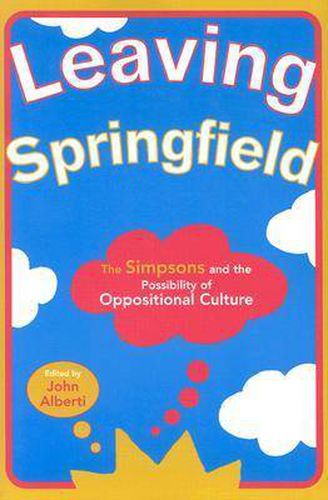Readings Newsletter
Become a Readings Member to make your shopping experience even easier.
Sign in or sign up for free!
You’re not far away from qualifying for FREE standard shipping within Australia
You’ve qualified for FREE standard shipping within Australia
The cart is loading…






This is a study of the television programme
The Simpsons
which focuses on the show’s dual roles as subversive political satire and mainstream mass media hit. Since its first appearance as a series of cartoon vignettes in 1987 and its debut as a weekly programme in 1990,
The Simpsons
has had multiple, even contradictory, media identities. Although the show has featured biting political and social satire, which often proves fatal to mass public acceptance,
The Simpsons
entered fully into the mainstream, consistently earning high ratings from audiences and critics alike.
Leaving Springfield
addresses the success of
The Simpsons
as a corporate-manufactured show that openly and self-reflexively paraodies the very consumer capitalism it simultaneously promotes. By exploring such topics as the impact of the show’s satire on its diverse viewing public and the position of
The Simpsons
in sitcom and television animation history, the commentators develop insights into the ways parody intermixes with mass media to critique postmodern society.
$9.00 standard shipping within Australia
FREE standard shipping within Australia for orders over $100.00
Express & International shipping calculated at checkout
This is a study of the television programme
The Simpsons
which focuses on the show’s dual roles as subversive political satire and mainstream mass media hit. Since its first appearance as a series of cartoon vignettes in 1987 and its debut as a weekly programme in 1990,
The Simpsons
has had multiple, even contradictory, media identities. Although the show has featured biting political and social satire, which often proves fatal to mass public acceptance,
The Simpsons
entered fully into the mainstream, consistently earning high ratings from audiences and critics alike.
Leaving Springfield
addresses the success of
The Simpsons
as a corporate-manufactured show that openly and self-reflexively paraodies the very consumer capitalism it simultaneously promotes. By exploring such topics as the impact of the show’s satire on its diverse viewing public and the position of
The Simpsons
in sitcom and television animation history, the commentators develop insights into the ways parody intermixes with mass media to critique postmodern society.